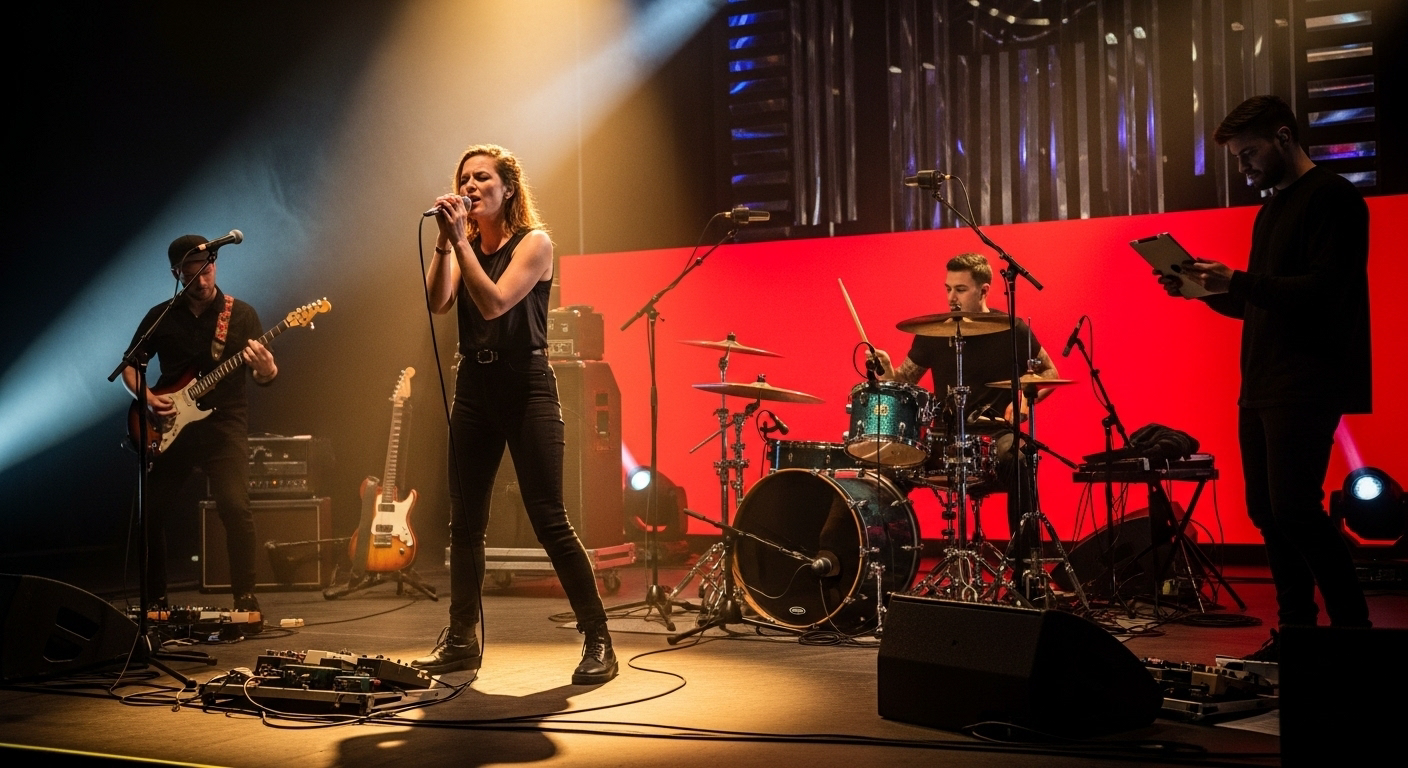
Access your free rider template Access your free rider template Access Now


Get exclusive resources, gig management tips, and tools straight to your inbox.
How to get the most out of a gig with
Everything you need to know to make soundcheck smooth, stress-free, and pro, even if it’s your first time
If you're in a new band, stepping into your first venue for a soundcheck can feel… intimidating. Cables everywhere, unfamiliar gear, techs using terms you’ve never heard before, and all eyes are on you to get things sorted fast.
But here’s the truth:
Soundcheck isn’t scary. It’s just misunderstood.
In this guide, we’ll break down exactly what happens during a soundcheck, how to prepare for it, and the most common mistakes to avoid, all in plain English. By the end, you’ll feel confident, sound better, and look like a band who knows what they’re doing (even if you’re just getting started).
Let’s be clear: soundcheck is not a rehearsal. It’s the process where your band and the venue’s sound engineer work together to get your levels right, check your gear, and make sure the audience hears your best performance.
A good soundcheck = a better gig. A bad one? Distorted vocals, screeching feedback, and confused faces all round. No thanks.
Even if you’re just playing a small venue, preparation goes a long way. Here’s your basic soundcheck survival kit:
(including spares: cables, strings, drumsticks)
yes, check them again
or DI boxes
seriously, being polite matters
Pro tip: Show up 10–15 minutes early. Respecting call times makes a big impression.
Here’s a typical run-through:
each instrument is plugged in and tested one-by-one
each band member checks what they hear on stage
usually a song or just part of a track to balance the full band
EQ, gain, and mic placements are adjusted
you pack up so the next band can check in
Most soundchecks happen fast, especially at festivals or multi-band gigs. That’s why you need to be prepared and efficient.
Even experienced bands mess this up. But if you avoid these, you’re ahead of the game:
And the biggest one? Not communicating clearly.
Sound engineers are there to help you sound the best you can but they’re not mind-readers. Be polite, be clear, and ask questions if you don’t understand something. They want the same as you, for you to sound the best you can.
These two documents let everyone know ahead of time what you need. For most new bands and artists they feel that they are not big enough to send one through but that is further from the truth, sure you might be far away from asking for a bowl of only brown m&ms but you are more than welcome to be sending a rider through saying keep details like:
It helps the crew prep before you arrive. And it makes the entire process smoother for you.
Need help creating one? Download our free [Rider Plot Template] or try the built-in rider creator tool in Stage Portal.
If this all sounds like a lot to remember and manage it is. That’s why we built Stage Portal.
Stage Portal helps artists organise and share everything a venue needs for your gig in one click:
It’s like having your own tour manager, but you don’t have to wait till you can afford one.
You don’t need to be famous.
You don’t need the best gear.
You just need to be prepared.
Soundcheck is your first impression on stage crew, other bands, and the venue. When you show up ready, respectful, and in control, people remember. And they’re more likely to book you again.
So rehearse your songs. But prep your logistics too.
Because sounding good starts before you play your first note.
Download our free rider template or start your free 30-day trial of Stage Portal and take control of your gig logistics.
Discover the latest insights.